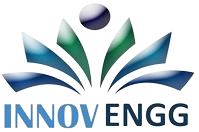In the world of project management, the pursuit of high-quality results is a constant theme. Quality management is an integral part of the project management process, ensuring that the project’s deliverables meet or exceed stakeholder expectations. In this blog, we will explore the importance of project quality management, its key principles, and how it contributes to delivering exceptional project outcomes.
Understanding Project Quality Management
Project quality management is a comprehensive approach to ensure that a project meets its objectives while adhering to specified quality standards. It encompasses processes, methodologies, and tools aimed at planning, controlling, and assuring the quality of project deliverables and processes throughout the project lifecycle.
The Key Principles of Project Quality Management
- Clear Quality Objectives: Define clear and measurable quality objectives for the project. These objectives should align with stakeholder expectations and project goals.
- Quality Planning: Develop a quality management plan that outlines how quality will be defined, measured, and validated throughout the project. This plan should also identify roles and responsibilities related to quality.
- Process-Based Approach: Implement a process-based approach to quality management, focusing on systematically improving project processes to enhance the quality of deliverables.
- Continuous Improvement: Foster a culture of continuous improvement within the project team. Encourage regular reviews, feedback loops, and lessons learned sessions to identify areas for enhancement.
Key Components of Project Quality Management
- Quality Planning: This phase involves defining quality standards, metrics, and processes to be used during the project. It outlines the expectations and criteria for quality throughout the project.
- Quality Assurance: Quality assurance activities are proactive measures taken to prevent defects or issues in project deliverables. This includes process audits, reviews, and compliance checks.
- Quality Control: Quality control focuses on detecting and correcting defects in project deliverables. It involves inspections, testing, and verification to ensure that the deliverables meet the defined quality standards.
The Benefits of Effective Project Quality Management
- Enhanced Stakeholder Satisfaction: High-quality deliverables result in satisfied stakeholders who trust your project management capabilities.
- Cost Savings: Quality management helps identify and rectify issues early in the project, reducing the cost of rework and project delays.
- Improved Risk Management: Effective quality management mitigates the risk of project failures, ensuring that deliverables meet requirements and are fit for their intended purpose.
- Reputation and Credibility: Consistently delivering high-quality projects enhances your organization’s reputation and credibility in the industry.
Project quality management is not an isolated activity but an integral part of the project management process. By embracing the principles of quality management, focusing on planning, assurance, and control, project managers can consistently deliver high-quality results that meet or exceed stakeholder expectations. In today’s competitive landscape, quality is not just a goal; it’s a necessity for long-term success in project management.
If you have any sort of inquiry feel free to utilize the 30 minutes Free Consultation that can be booked by email sales@innovengg.com.au.
